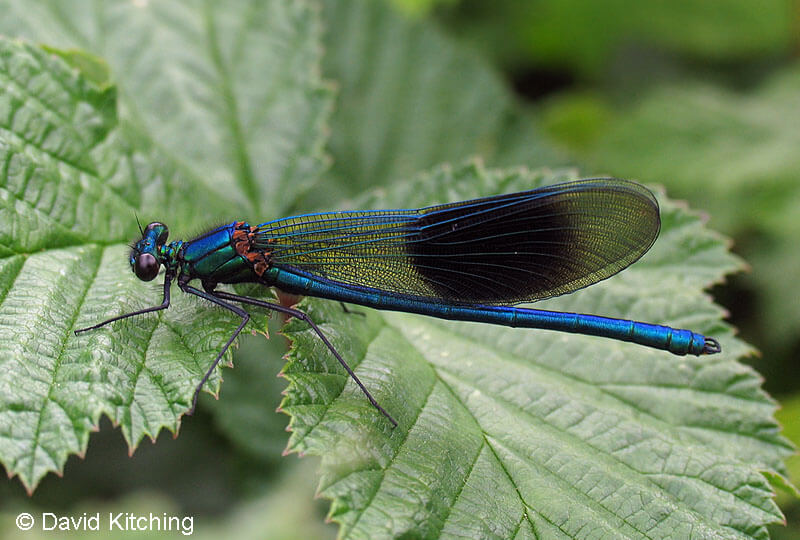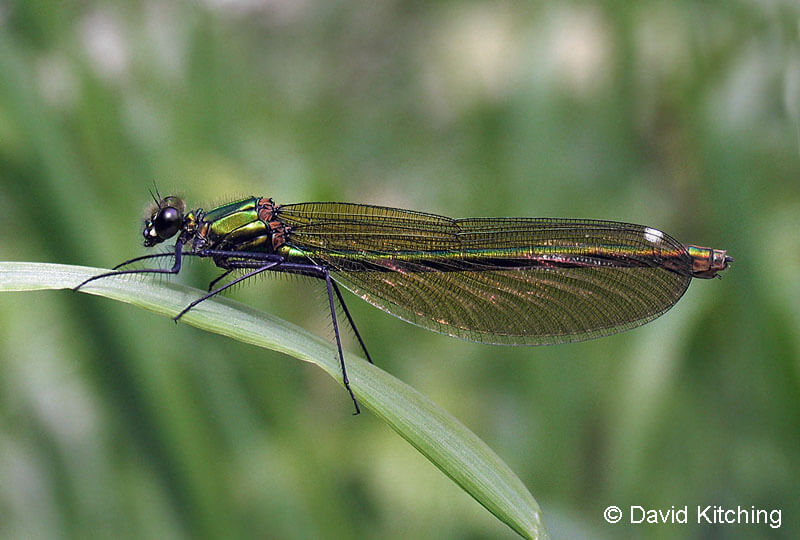Species Information:
Length: 45mm (Adult), 18-24mm (Larvae)
Flight Period: May (April) - August (September)
Only two species of damselfly in Britain have obviously coloured wings. They both belong to the genus Calopteryx. In this species the wings of the mature male have a dark blue-black band across the central portion and those of the female are iridescent pale-green. The body colour is metallic blue-green in the male and green with a bronze tip in the female. The flight is fluttering, butterfly-like and the male often perform a fluttering display flight in front of females.
long 'horn-like' antennae and long thin legs distinguish this as a demoiselle. Two pale bands on the caudal lamellae (sometimes difficult to see) and lack of an occupital tooth behind each eye distinguish this as a Banded Demoiselle.
Habitat:
Mainly found along slow-flowing lowland streams and rivers, particularly those with muddy bottoms.
Status & Distribution:
Common. Most of England (south of the Humber), Wales and Ireland. Main flight period is early May to end August.
Similar Species:
The Beautiful Demoiselle (C. virgo) is the only other British damselfly with coloured wings.


.jpg)